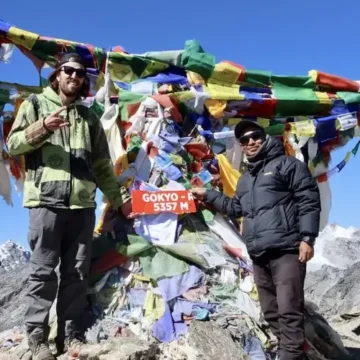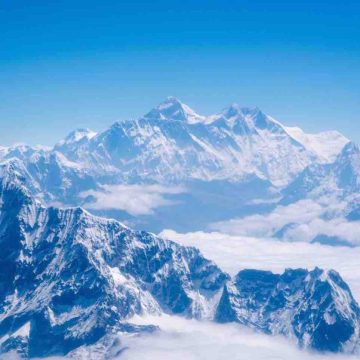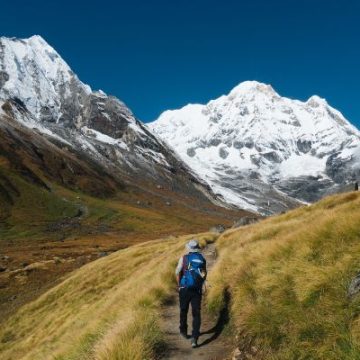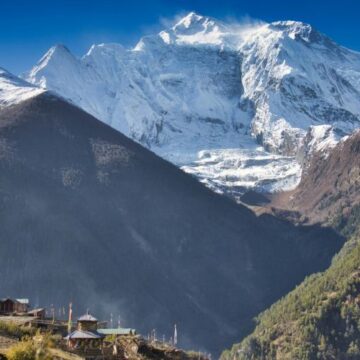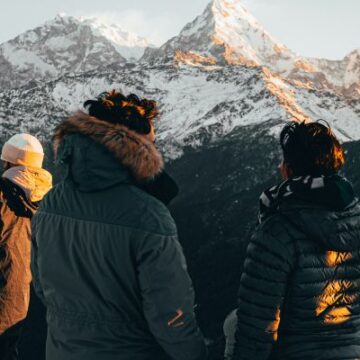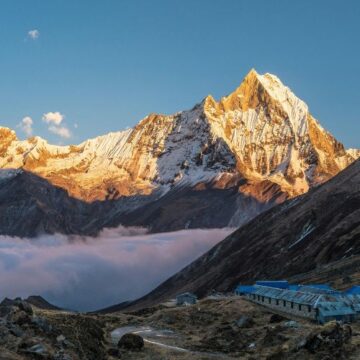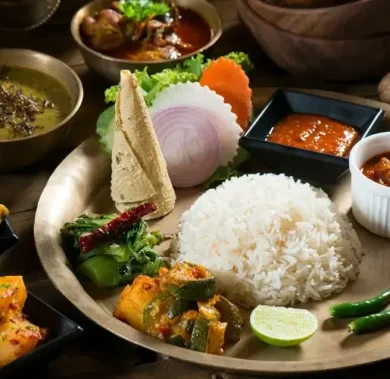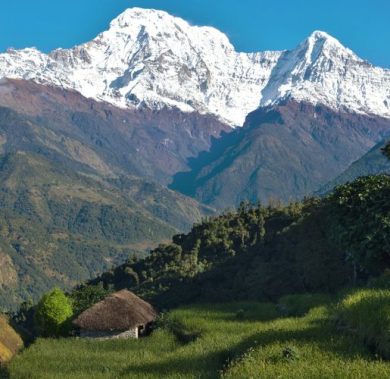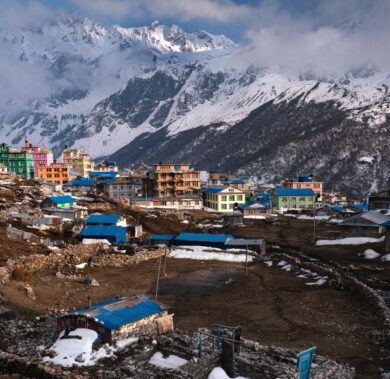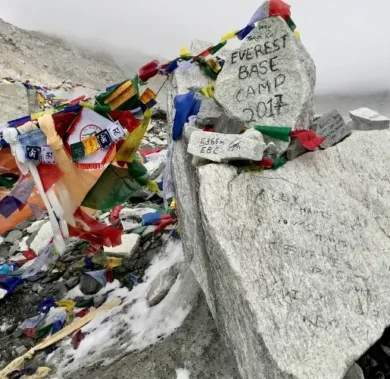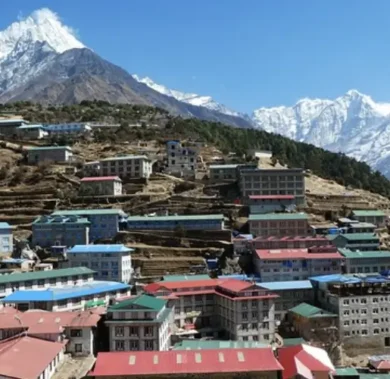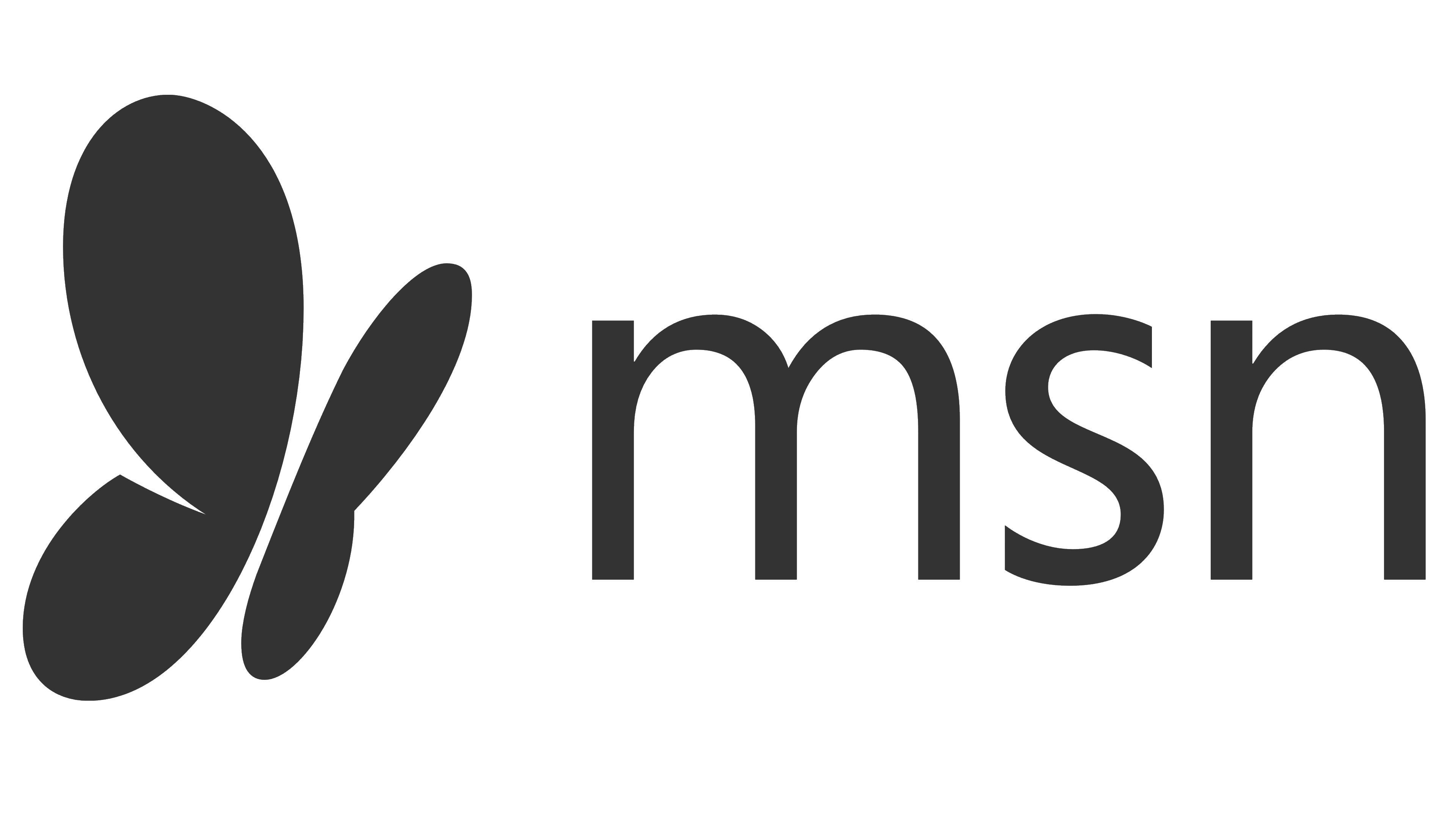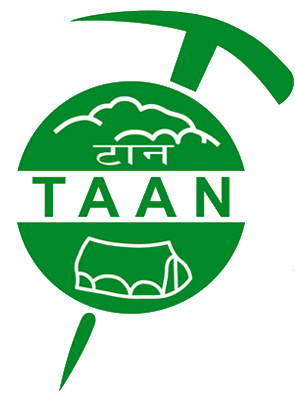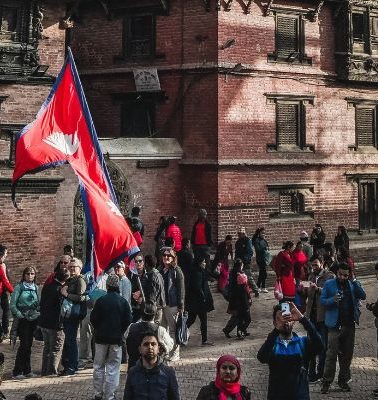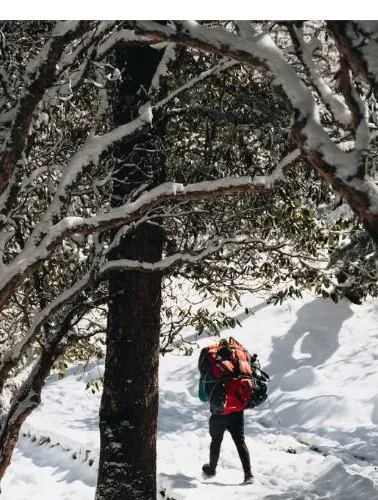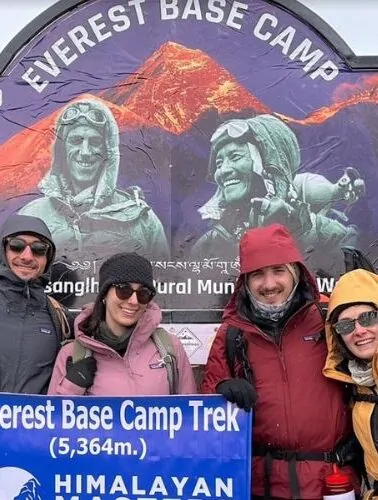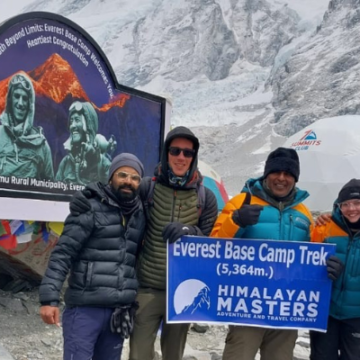
How Much Does Mardi Himal Trek Cost?
Table of Contents
Budget is a crucial factor for all of us when making any trip. ‘How much does the trip cost?’ is the common question almost all the clients ask us before they book the trip. But it is not easy to declare the exact amount for any trip. You need to pay the formal amount in a few areas, like buying TIMS cards and an ACAP permit. Besides, the kinds of hotels you choose in Kathmandu and Pokhara, the means of transportation you prefer to use and the agency you deal with your trip with greatly impact your expenses.
Mardi Himal Trek Permits Cost
In order to do the Mardi Himal base camp trek, you require two permits- TIMS (Trekking Information Management System) and ACAP (Annapurna Conservation Area Project). The cost for TIMS card and ACAP for the SAARC nationals and people from other countries is different, which is mentioned below:
TIMS
Organized group NPR. 1000/- per person
Free Individual NPR. 2000/- per person
SAARC nationals in organized group NPR.300/- per person
SAARC nationals free Individual NPR. 600/- per person
ACAP: People out of SAARC NPR. 3000/- per person
SAARC nationals NPR. 200/- per person
Accommodation Cost During Mardi Himal Trek
Before and after your trek, you need to stay in Kathmandu and Pokhara hotels, where the cost depends on which standard hotel you prefer. There are five-star luxury hotels too, the simple hostels providing you with a single bunk bed. To get the detailed cost information, please see our Hotel Cost in the Pokhara section.
Mardi Himal base camp trail was opened just a few years ago, so the teahouses are gradually being built along the trail. The accommodation cost in the teahouse is relatively less than the cost of food. Normally they charge Rs. 200 to Rs. 500 ($2 to $5) for a room with two beds.
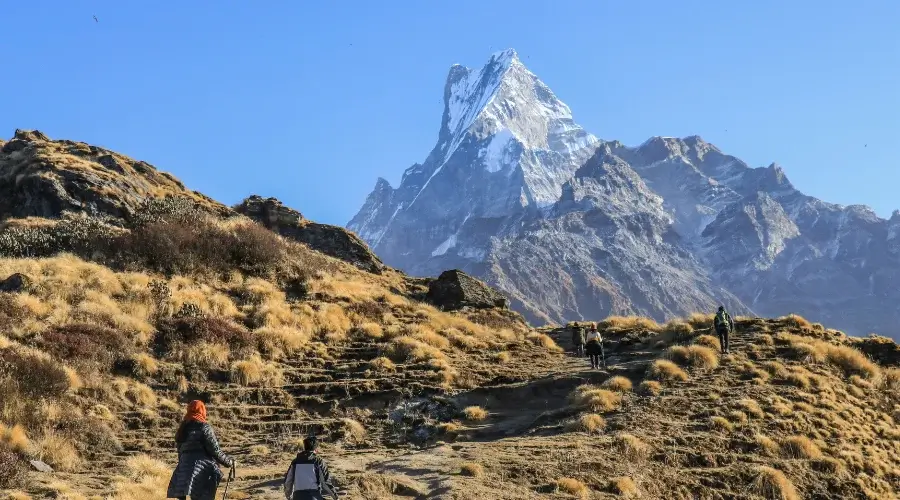
Food expenses During Mardi Himal Trek
The teahouses along the trail offer pretty similar types of menus. The popular Nepali dish, Dalbhat, is common and economical in almost all the teahouses. Once you order a set of Dalbhat, you can add as much as you desire without any extra charge. The set of Dalbhat normally costs $3 to $8 along the trail. Besides Dalbhat, the teahouses offer you Indian, Chinese, and other continental food that normally costs $4 to $ 9. The foods cost much more as you hike to higher altitudes.
Drinks and Water
While you are hiking in the Himalayas, you must be alert about the hydration level of your body. You must drink plenty of water and other fluids that keep you hydrated. Bottled water might cost you around $2 at higher altitudes but is comparatively cheaper at lower elevations.
A cup of coffee/tea costs you about $1 to $3, which might be slightly different in different places. Carrying a reusable bottle of water purifying tablets is the best way to save money. There are many natural sources of water, like springs, from where you can refill your bottle and purify.
If you do so, you will also be admired as you are helping to keep the region garbage-free. The cost of accommodation, food, and drink during peak season is relatively higher than that of low seasons like winter and monsoon.
The Mardi Himal Trek Transportation Cost
International Airfare:
The cost of an International flight depends on which country you are flying to Nepal from your country.
Kathmandu to Pokhara (Vice Versa)
- Flight: USD 115
- Charted flight: USD 1900
- Local bus: USD 7
- Tourist Bus: USD 10
- Luxury Tourist Bus: USD 30
- Private Car: USD 110
- Jeep: USD 150 (six persons)
- Once you land at the Tribhuvan International Airport (TIA), you have two main options for traveling from Kathmandu to Pokhara, from where your trip officially begins. You can take a 25-minute normal flight for about USD 115, a charted flight for USD 1900, or other roadway options.
- If you choose to travel via road, you will have five options. The luxury tourist bus costs about USD 30, whereas a normal tourist bus costs about USD 10. A private car can be an excellent option, paying about USD 110. Similarly, if
you are in a group of a maximum of six persons, you can hire a jeep at USD 150. The cheapest way to travel from Kathmandu to Pokhara or vice versa is to take a local bus that just charges you about USD 7.
Pokhara to Phedi
- Private car (reserved): USD 20 (maximum four persons)
- Taxi (reserved): USD 18 (maximum four persons)
- Jeep (reserved): USD 25 to USD 30 (maximum seven persons)
- Local bus: USD 2 to 3 per person
Most trekkers begin the Mardi Himal base camp trek from Phedi and conclude at Siding. So, you are required to take any means of transport at your convenience. If you take the Mardi Himal Base Camp trek as a side trek of the Annapurna Base Camp trek, Poonhill trek, or Annapurna Circuit trek, it can also begin from Nayapool, Kande or other stations. The transportation cost gets a little different depending on the length of distance or the vehicle you prefer.
Note: The exact station to begin the trek and conclude will be negotiated wisely by Himalayan Masters’ local experts when you show interest in making the Mardi Himal base camp trek. The cost can also be estimated depending on the route you like to take and the means of transportation you prefer.
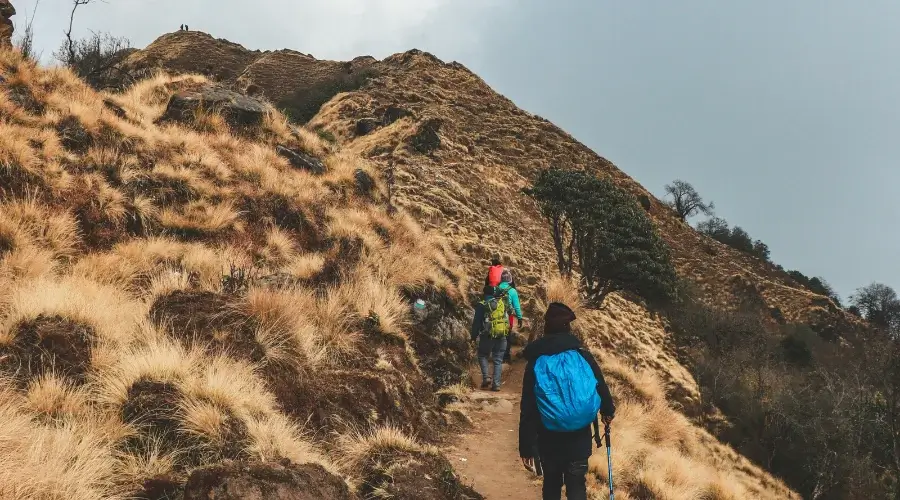
Guide and Porter Cost In Mardi Himal Trek
Guide cost: USD 25 to USD 30
Potter cost: USD 22 to USD 27
The Mardi Himal Base Camp trek can also be done independently without hiring a guide and/or a porter. However, having a guide helps you gain more information, as they are professionals in that field. Hiring a porter is a great idea, as he (she) carries the load for you and helps you enjoy nature along the trail, communicate with the locals, and get to know their unique and amazing lifestyle.
The porter normally carries about 20 kilograms. Generally, the cost for the guide and the porter is $25 to $30 and $22 to $27 per day respectively. It includes their salary, food and accommodation for the whole trip and the single trip insurance.
Hotel Cost In Pokhara
- Five Star: 160 USD to 200 USD per night (Cost for BB)
- Three Star: 70 USD to 140 USD per night
- Tourist Standard: 30 USD to 50 USD
- Hostel: 4 USD to 6 USD per bed/night
Pokhara is the gateway to most Himalayan trips, and there are a variety of hotels offering the best accommodations. Trekkers and visitors can choose any hotel based on their interests and the budget they have estimated.
Five Star Hotels
A few hotels in Pokhara are as standard as the Western fancy hotels, with excellent restaurants providing luxurious accommodations to their guests and all the facilities they require. Pokhara Grand, Temple Tree Resort, Rupakot Resort, and Fishtail Lodge are the best five-star hotels in Pokhara. They normally cost USD 160 to 200 per night including the breakfast.
Three to Four-Star Hotels The hotels in this category offer excellent accommodations, charging 70 USD to 140 USD per night. Pokhara Batika, Kuti Resort and Spa, Tuki Resort and Spa, and Barpipal Resort are popular hotels of this
category.
Tourist Standard Hotels
Many tourists prefer Tourist Standard hotels that normally cost 30 USD to 50 USD per night. Trekkers Inn, City Inn, Hotel Lakeside, and Hotel Peninsula are famous tourist standard hotels in Pokhara. Hostels offer you accommodation with very basic requirements at a significantly low price. A single bunk bed costs 4 to 6 USD. Pokhara Youth Hostel, Zostel Pokhara, and Puskar Backpackers Inn are the best options for this category.
Miscellaneous Costs
Apart from the formal costs, there are other areas to pay for during the Mardi Himal base camp trek. The following description hints at the additional cost you might require for the trip.
Travel Insurance:
Travel insurance is a basic requirement for any trip, especially one that is adventurous. It covers the emergency rescue and evacuation services during the trip. Although the Annapurna base camp trek is a less risky trek, you must travel on rough terrains for 4-6 hours daily. Thus, safety precautions are required for unpredictable circumstances.
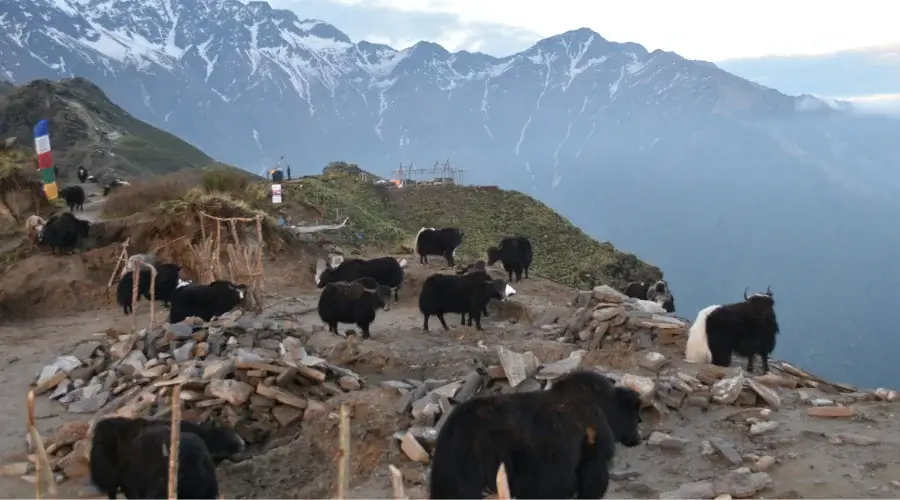
Hot shower:
Due to an unstable electricity supply and less effective solar power, managing running hot water showers in the Himalayas is a challenging task. Some of the teahouses manage this facility with little additional charge. They normally cost 2 to 3 USD for a single hot shower.
Tips:
Although it is not compulsory, most clients want to thank their service providers, like the guide, the porter, and others, for a small amount of money just as a sign of appreciation and satisfaction they gained during the trip.
Internet:
Kathmandu, Pokhara, and some lower trail regions offer you free wifi services. But most regions in higher elevations have very limited internet service. So, they normally charge 1 to 1.5 USD for an hourly internet connection.
Gadgets Charge:
Do not be surprised to hear an additional charge for charging your phone! It is common in most trekking trails, especially in remote areas. You must pay 1 to 1.5 USD for charging your electronic gadget for an hour or two. The amount varies in different places.
Souvenirs:
Despite being small in size, Nepal is rich in souvenirs. Many of our clients have expressed in their reviews that Nepal offers something to everyone. You can pick anything for your family, friends, or yourself as a memento of the Himalayas, either in Pokhara or in Kathmandu. The price depends on the items you choose or the place you buy them.
Mardi Himal trek cost for Nepali
The Mardi Himal Trek cost for Nepali can depend on how much he or she spends on the trek. The cost for Nepali on a Mardi Himal trek depends on various factors such as accommodation, food, drinks, permits, etc.
The Mardi Himal trek cost for Nepalese, including accommodation, food, electricity, and charging, is included as a package for Nepali only. The package cost increases as the altitude increases. I do not mean that the cost will suddenly increase to thousands of rupees. The cost only increases up to Rs. 200—Rs. 300. The average cost for the package is around Rs.1500—Rs. 2000 as per altitudes.
The cost of lunch during the day is around Rs.400 – Rs.700. High altitudes might even charge some extra cost for drinking hot water, maybe around Rs.100.
Do we need a permit for Mardi Himal Trek as a Nepali? No, as a Nepali, you do not need permits for the Mardi Himal trek. So you do not have to stress about the permits.
Overall, a Mardi Himal trek will cost between Rs. 15,000 and Rs. 20,000, the average Nepali service.
Mardi Himal trek cost for Indian
Now, let’s talk about the cost of the Mardi Himal Trek for Indians. The cost for Indians is higher than for Nepalis.
The accommodation cost for Indians and foreigners in the Mardi Himal trek can cost between USD 6- 8.
The food and meals will cost around $3 to $9, depending on the type. You will also be charged for hot water during the Mardi Himal Trek.
The Mardi Himal Trek Permit cost for Indian is around Rs.1000 per person for ACAP and Rs.600 for FITs. If you are travelling in a group, you will be charged Rs.300 for the TIMS card.
You might be charged around $1 to $3 for charging and hot showers. As an Indian or any foreigner, you should also pay the Visa and insurance costs, which might increase the overall Mardi Himal Trek cost.
Mardi Himal trek cost from Pokhara
The cost of the Mardi Himal trek from Pokhara usually ranges from $300 to $500. This includes transportation, accommodation, meals, permits, and a guide. From Pokhara, a jeep ride to Kande costs around $20.
Accommodation in teahouses along the trek costs about $5 to $10 per night. Meals, including breakfast, lunch, and dinner, typically cost $20 to $30 per day.
The Annapurna Conservation Area Permit (ACAP) costs $30, and the Trekkers’ Information Management System (TIMS) card costs $20. Hiring a guide costs around $25 to $30 per day. Optional costs may include gear rental, snacks, and tips for the guide.
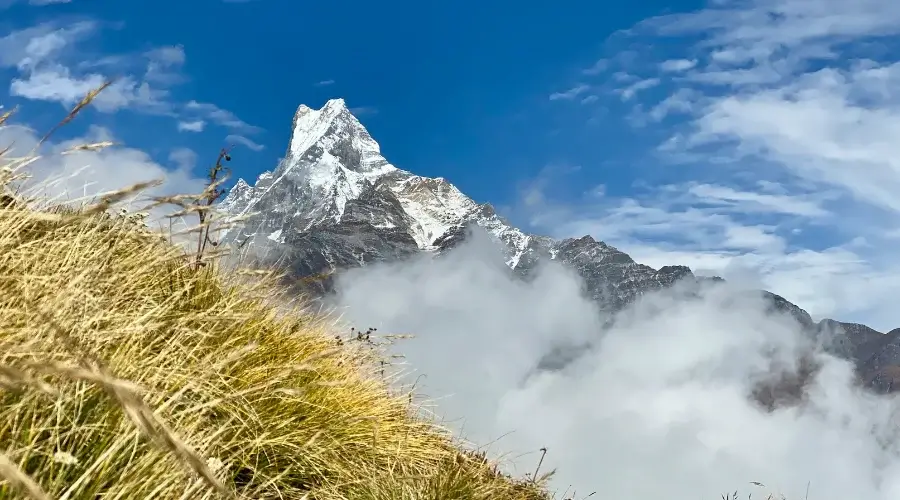
Cost Includes and Excludes
Himalayan Masters manages many packages both for foreigners and Nepalese wishing to gain lifelong hiking experience in the Himalayas at an affordable price. We have packages of USD 400, USD 500, or USD 600 depending on the number of days and the routes. Normally, the cost of the package includes and excludes the following things:
Cost Includes
- Permits (ACAP and TIMS)
- Transportation (Kathmandu – Pokhara (only by bus) – Phedi and Siding – Pokhara )
- Breakfast, lunch, and dinner during the trek
- Accommodation in the teahouse during the trek
- One professional license-holder trekking guide
- Seasonal fruits
- First aid
- Himalayan Masters T-shirt
- Government tax and official expenses
- Farewell dinner before departure
Cost Excludes
- International/domestic airfare
- Visa fee
- Hotels and meals in Kathmandu and Pokhara
- Kathmandu – Pokhara, Pokhara – Kathmandu airfare
- Trekking gears
- All kinds of drinks (Alcoholic and non-alcoholic)
- Tips
- Emergency rescue and evacuation
- Laundry
- Phone calls/ internet
- Souvenirs
Want to know more?
Speak to an Expert





Sandip Dhungana
Nepal 🇳🇵
Whatsapp: +977-9823636377


